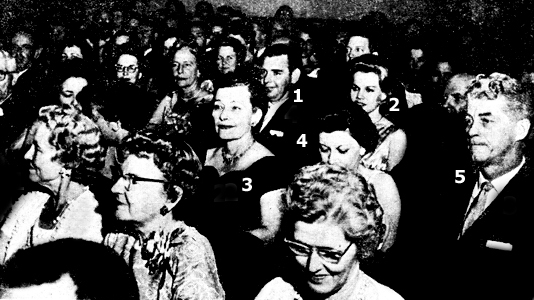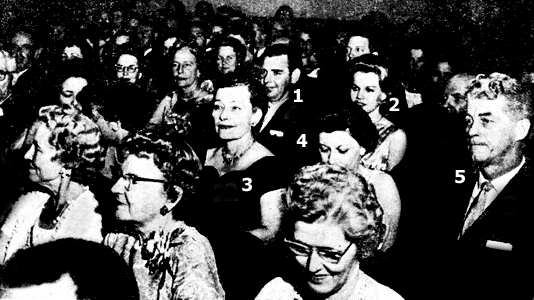After 50 years, I finally read the 260-page 1957 bestseller “Bridge to the Sun” (The University of North Carolina Press) by Johnson City native Gwen Terasaki.
In 1961, MGM turned the writer’s memoirs into a movie starring “Baby Doll” actress Carroll Baker as Gwen Terasaki and “Flower Drum Song” actor James Shegeta depicting Hidenari “Terry” Terasaki. August 16 ushered in the world premier of the motion picture at the Majestic Theatre, bringing international attention to the city.

My cousin, the late Lanny Bowman, was chosen to be Baker’s escort during the gala festivities and viewing of the much-anticipated film. Also present were Mrs. Terasaki, Mayor May Ross McDowell and City Manager David Burkhalter. The mayor proclaimed August 16 to be “Gwen Terasaki Day.”
The book’s jacket notes offered this brief synopsis of the literary work: “‘Bridge to the Sun’ is a beautiful, tender and moving love story – the true report of an international and inter-racial marriage of a Japanese diplomat and an American girl from the mountains of Tennessee.”
Gwen Harold met ambassador Terasaki while she was vacationing in Washington DC in 1930. The two soon married against family objections. After the attach on Pearl Harbor, Gwen, Terry and daughter Mariko were sent to Japan in exchange for American diplomats stationed there. Terry’s long-standing antagonism to the war caused him to be placed under the watchful eye of the Japanese secret police. Gwen became torn between allegiance to her native country and affection for her new home.
In the book, Mrs. Terasaki quoted Kipling: “To Terry – Two things greater than all things are, The first is Love, and the second War. And since we know not how War may prove, Heart of my heart, let us talk of Love!”
In spite of concerns related to language and loneliness plus her constant struggles to find food and other critical supplies, Gwen remarkably displayed no bitterness. At the conclusion of the war, Terry served as a liaison between Emperor Hirohito and General MacArthur and was instrumental in re-establishing diplomatic relations between the two countries.
A sampling of reader comments regarding the book shows a postwar public’s fascination with the subject: “Gwen Terasaki is a remarkable woman and her story allows us to experience life as she knew it during some of the most tumultuous times in the recent past.” “As literature, this book is not the best; as a historical first-hand document that recounts a personal, interesting, and very unique story, this is superb.” “Terasaki puts a human face on the Japanese war experience by emphasizing the heroic actions of her husband.” “The book is a rare chronicle of an outsider's experience in Japan during a time when outsiders were most unwelcome.”
The years took a heavy toll on Hidenari; he eventually suffered a series of debilitating strokes causing a significant lifestyle change. At Terry’s insistence, mother and daughter agonizingly left him behind and returned to the states to enroll Mariko in college. Mrs. Terasaki abruptly ends the book with some surprisingly stoic words: “A Western Union boy knocked at the door and handed me a cable gram. Terry was dead.” Gwen passed away in December 1990.
I hope my readers will visit the Johnson City Public Library and engage in this highly absorbing story of a courageous lady’s … “Bridge to the Sun.”

Comments are closed.